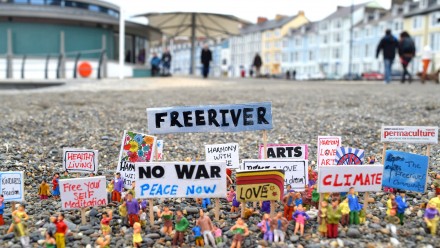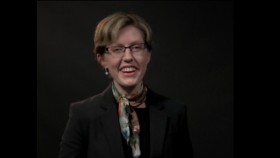Why Good Politics And Good Climate Science Don’t Mix
Dr Eryn Newman, from the ANU Research School of Psychology, helps explain 'Why Good Politics And Good Climate Science Don’t Mix'.
Imagine two people walking through a field. One of them tiptoes gingerly, zigging and zagging from one side to another. The other strides confidently straight ahead. Who looks more like they know what they’re doing?
Now what if I told you the field is full of land mines?
Confidence doesn’t equal competence. But our brains tend to assume it does. And that can create big problems when scientific evidence collides with political rhetoric. The senator who confidently throws a snowball to prove that winter is cold can be more memorable (and more believable) than the one who takes the podium to carefully explain how we know fossil fuel use is changing climate over decades. “Denialism has an advantage. Absolutely. There’s no question,” said Stephan Lewandowsky, professor of cognitive psychology at the University of Bristol in the UK.
As the U.S. confronts what to do about climate change, human psychology leaves climate-conscious politicians in a tough spot. Political action means convincing both constituents and colleagues that said action has to be taken and that you know the right path forward. But the global climate system, and our understanding of how humans are altering it, is complex and nuanced enough that talking about it can easily involve a stumbled series of “ifs,” “ands” and “buts.” So it’s worth asking: Is the science of rhetoric fundamentally at odds with the science of evidence-based policymaking?
Scientists who study the psychology of storytelling and rhetoric say there are several factors that give climate change denialists an advantage in the political marketplace. Simplicity and smoothness of the message is a big part of it, said Eryn Newman, professor of psychology at the Australian National University. She told me that the easier it is to process information, the more likely people are to believe it.
In other words, the simpler the words are to understand, the clearer and more consistent the narrative is and the more absolute and concrete the claims, the more likely people are to nod along. Anything that makes us briefly confused or makes our train of thought stumble will make an idea less believable. On the extreme end, this effect can mean that people have a harder time believing experts whose names they can’t pronounce, Newman told me. And in one study, a question asked in a hard-to-read typeface even makes it less believable. Scientists asked participants to read and answer a question that was intentionally flawed — “How many animals of each kind did Moses take on the ark?” When the font was less easily legible, people were more likely to notice that it was Noah, not Moses, who built the biblical boat.
Pretty often, we’re just working off intuition about what seems reasonable, Newman said. And this effect matters to political debates about climate change because scientists and advocates of climate change action often sacrifice smoothness of narrative and ease of processing in favor of nuance and accuracy.
Read the full article at https://fivethirtyeight.com/features/good-climate-science-is-all-about-n...










